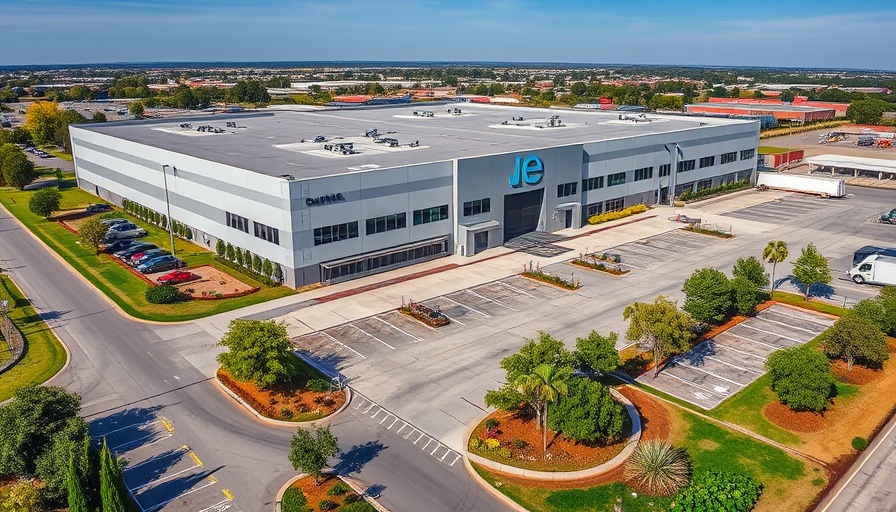
Understanding the AI Job Loss Warnings from Amazon's CEO
In a significant declaration reflecting the worries of many corporate leaders, Amazon's CEO, Andy Jassy, has highlighted the implications of artificial intelligence (AI) for the job market. Speaking openly in his recent blog post, he expressed how AI's remarkable advancements could lead to a decrease in the corporate workforce. But what does this mean for everyday workers and the broader job landscape?
The Dual Nature of AI: Efficiency and Anxiety
Jassy's statement is not just about job cuts; it's also about the transformative potential of AI. While he points out that AI could vastly improve tasks like inventory placement and demand forecasting, he also warns about the less appealing side: job displacement. The technology aims to create efficiencies but at the cost of traditional roles that have been common in corporate settings. As he articulates, "We will need fewer people doing some of the jobs that are being done today, and more people doing other types of jobs." This perspective is becoming increasingly echoed by leaders across various sectors.
A Broader Movement Towards AI in the Workplace
Executives from major companies like JP Morgan and Meta have also voiced concerns regarding AI's impact on jobs. They not only echo Jassy's sentiments but also frame such warnings as a call to action for employees to adapt to the changing landscape. Jensen Huang, the CEO of Nvidia, rightly pointed out that employees won’t lose their jobs to AI but will risk their roles to those who harness AI's capabilities effectively. Thus, the emphasis shifts to a newfound necessity for workers to evolve alongside these technological advancements.
The Need for Adaptive Skills: Preparing for a Changing Workforce
One significant takeaway from these corporate warnings is the emphasis on the importance of skills adaptation in this rapidly changing environment. As leaders encourage employees to learn new technological skills, it echoes a timeless truth: stagnation is not an option. The competition will not only be for jobs but for those who can effectively implement AI in their work processes.
AI and Corporate Responsibility: The Human Side of Job Transformation
But amidst the fear and uncertainty, it is essential to remember the human side of these changes. As companies display their commitment to innovating with AI, there is a responsibility to support employees through this transition. Organizations should consider strategies that prioritize upskilling and reskilling workers so that they align with new roles created by AI advancements, ultimately promoting a workforce that is not just surviving but thriving.
Counterarguments: Challenging the Narrative of AI-Induced Fear
Critics argue that the warnings from CEOs might be a tactic to instill fear in workers about job security. Business writer Allison Morrow posits that invoking AI rhetoric reflects a long-standing strategy of maintaining employee productivity through fear of replacement. Nonetheless, confronting the impact of AI honestly is crucial for fostering a culture of preparation rather than panic.
A Future Not Set in Stone: Embracing Opportunities
While the fear of layoffs and job cuts is valid, there is also an exciting opportunity to reimagine the workplace. As sectors adapt, this could lead to the creation of entirely new roles that require a different skill set. Christopher Myers from Johns Hopkins warns that executives must recognize that AI will undoubtedly reshape organizational structures, paving the way for innovation. It serves as a reminder that technology can bring forth not just challenges, but also new possibilities.
In Conclusion: What Can We Do?
The warnings from corporate leaders regarding AI's potential job losses are not merely alarms; they represent a critical moment of reflection on the future of work. Individuals must take proactive steps to embrace the changes that lie ahead. That could mean taking advantage of online learning opportunities, engaging in community discussions about AI, or simply staying informed about innovations within their industry. By turning awareness into action, we can shape a future where technology enhances rather than diminishes our workplaces. Let's stay curious and equipped for the evolving world of work.
 Add Row
Add Row  Add
Add 




Write A Comment